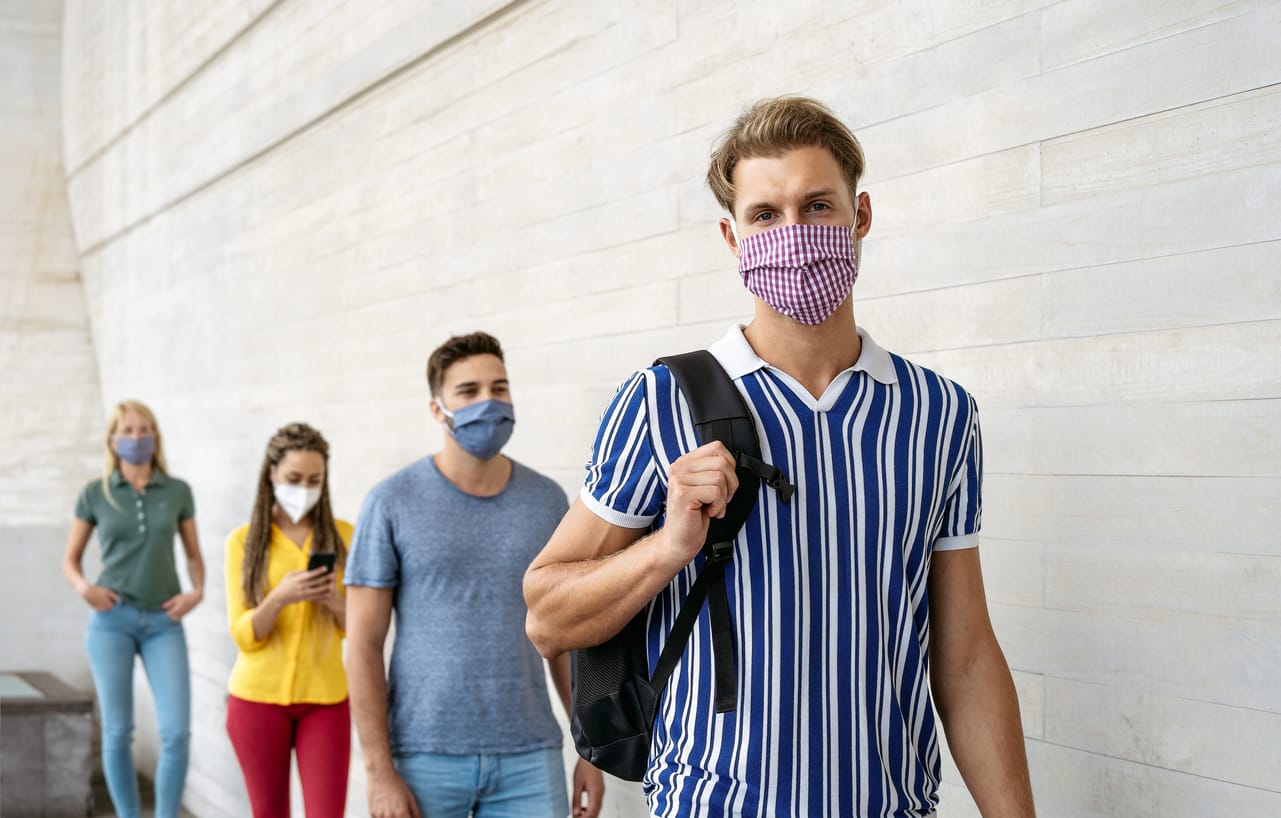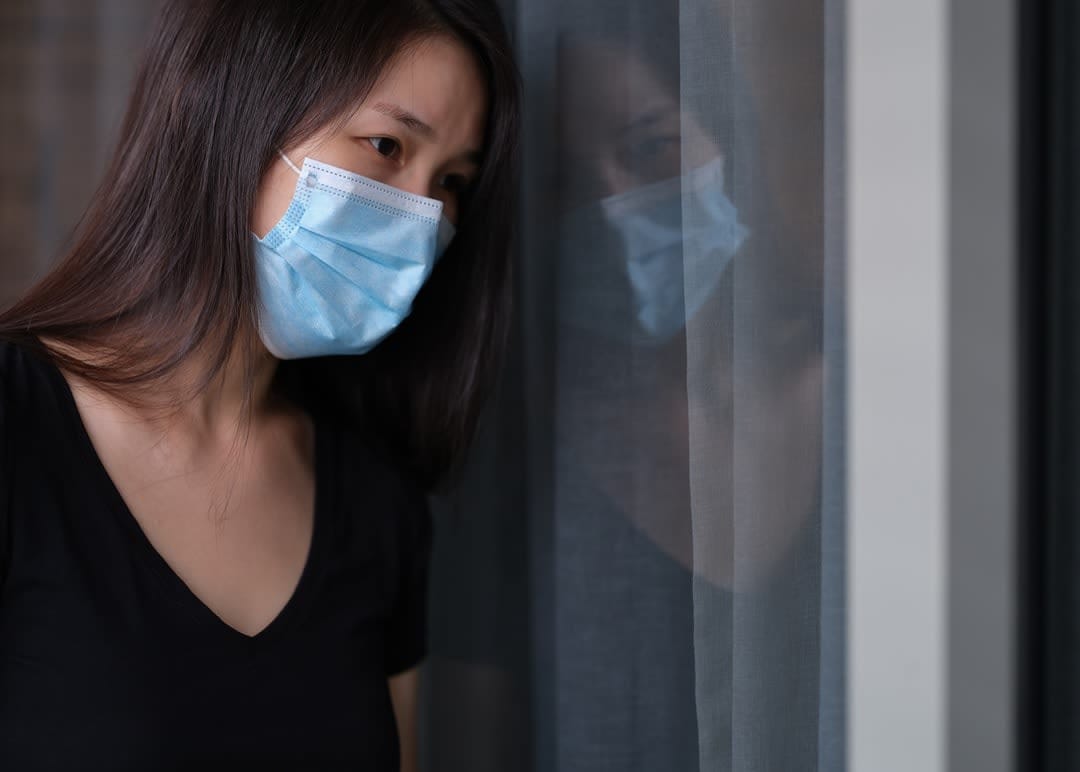
There's a global spotlight shining brightly on the wellbeing of young people as we navigate the uncharted territory of the COVID-19 pandemic.
In the United States, recent research led by a team of Monash and Harvard researchers identified rising rates of poor mental health, substance abuse and suicidal ideation among young adults as a consequence of the andemic.
Humanitarian organisations have also added to the growing chorus of concern for young people’s health and wellbeing around the world, particularly in young women. Plan International’s recently released report, Halting Lives, details how data from 7000 young women across 14 countries reveals alarmingly high levels of anxiety and stress in the vast majority of young women around the globe.

For universities, these figures are intrinsically troubling; they also raise the question of how university students, in particular, are faring through the pandemic. Unfortunately, to date, there is scarce data on university students’ lived experiences, mental health and wellbeing throughout the pandemic, both in Australia and overseas. Those few studies that have captured students’ experiences have tended to be conducted over short timescales – a non-ideal approach to examining a phenomenon with as many twists and turns as a pandemic.
Early in the pandemic, we at Monash saw the need to establish a comprehensive, long-term study into our students’ welfare throughout COVID-19 – the Thrive@Home study. The data from the first three waves of this innovative study has now been analysed. The results paint a nuanced and somewhat surprising picture of how our student body has fared through this unprecedented disruption to learning.
Filling the gap
Thrive@Home is the first longitudinal study of its kind to be conducted within an Australian university. It's provided unique insights into the experiences of students navigating through their studies under various stages of lockdown in Victoria.
The study covers pressing issues of COVID-19’s impact on:
- (mental) health
- finances
- academic performance
- living arrangements, and
- emotional and physical wellbeing.
More than 1100 students took part in each of the first three waves of the study, which began in May 2020. At that time, Victoria had been declared a state of emergency, and metropolitan Melbourne was in lockdown.
Monash’s Clayton campus had been closed for two months, and students had been studying online for 10 weeks.

By wave two of the study, case numbers in Melbourne were rising again following a brief dip, and stay-at-home restrictions were in place.
By wave three in August, students had spent semester one off campus, Victoria was in stage four lockdown, and it was clear 2020 was to be a year like no others for students, universities, and the entire nation.
So how did they fare throughout all this uncertainty and disruption?
The short answer is, as well could be expected, and perhaps a little better. A number of our findings were unsurprising. More than half of respondents expressed (entirely reasonable) concern about the future, and how Australia and the world would look after the pandemic was over.
Almost half of the students surveyed were not hopeful that the COVID situation would end in the near future. One in four students reported worry about personal and familial finances, while one in five were worried about the stability of their living situation.
COVID-19 has, unquestionably, changed the student experience. Its long-term effects on students depend on how universities respond.
Levels of anxiety, depression, fatigue, sleep quality and social isolation, however, were not overly elevated across the cohort, nor did they exhibit large fluctuations. This suggests that, while the pandemic may have come as an initial shock to the student body, our students demonstrated adaptability to the situation and got on with their studies.
It was only restriction-related stress levels that saw a substantial increase between wave one (May) and wave three (August), a period that also included examinations.
Other findings speak to our students’ seemingly realistic, but resilient, outlook.
Most students reported their physical health to be "good" or better, and almost all students were able to maintain contact with family and friends through lockdown. Most students adapted well to studying from home, with only a fraction (0.4%) stating that they did not have what they needed to study from home by August.
Encouragingly, most students reported feeling optimistic and confident about their academic performance during semester two.
The road ahead
Standing in contrast to the global picture, our findings are certainly good news, but vigilance is required. We know that reduced employment prospects for our graduates, the effects of studying in isolation throughout 2020, the loss of opportunities for personal growth and exploration, the threat of recurring community lockdowns, and a new era of compounding economic and ecological challenges may eventually begin to take their toll.
COVID-19 has, unquestionably, changed the student experience. Its long-term effects on students depend on how universities respond.
This means embracing co-design and placing it at the heart of health and wellbeing responses. It also means a renewed focus on developing preventative initiatives that are measurable, scalable and accessible by all members of the student body. Leveraging the possibilities afforded by novel digital technologies will be critical.
As Victoria inches towards the easing of restrictions, our thoughts must now turn to the road to recovery. Restoring life as we knew it pre-COVID will not be easy, but there is a clear opportunity for forward-thinking Australian universities to play a leading role in developing the resources necessary to rebuild and safeguard the future health and wellbeing of their students.
The first student mental health webpage tailored to Monash international students is now live.





